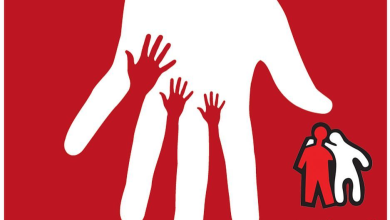Iran Faces Escalating Poverty and Economic Challenges

Dr. Farshad Momeni, a prominent economist and professor at Allameh Tabataba’i University, has called for urgent reforms to address Iran’s growing economic woes. Speaking at a seminar titled “Political Economy of the Collapse of Bashar al-Assad’s Regime” at the Institute for Religion and Economy Studies, he emphasized the importance of scientific approaches to tackle the country’s pressing issues and warned against the continuation of inflationary policies.
The Role of Science in Solving National Challenges
Dr. Momeni highlighted the collective agreement among Iranian intellectuals and development advocates that a scientific approach is the most effective tool for fostering hope and resolving crises. He stated:
“By employing scientific methods, we can identify the root causes of our problems, understand their mechanisms, and chart pathways out of crises.”
He also stressed that new developments must be evaluated with an eye toward addressing the nation’s practical and intellectual needs for improvement.
Alarming Rise in Poverty
Drawing on official statistics, Dr. Momeni painted a grim picture of poverty in Iran:
“Before the shock therapy of late 2010, the number of people living in poverty stood at 10 million. By 2016, this figure had risen to over 13 million, and in 2021, it surpassed 25 million. Today, more than 50% of the population cannot meet their basic caloric needs,” he revealed.
He challenged policymakers to defend these approaches and invited open debate on their efficacy, emphasizing the need for accountability:
“If proven wrong, these policies must be stopped.”
Budget 2025: A Recipe for Disaster?
Criticizing inflation-inducing measures, Dr. Momeni urged a thorough review of the proposed 2025 budget:
“Assuming that adjusting methods for increasing fuel prices will generate revenue without causing inflation is a misconception. These strategies have failed repeatedly over the past 35 years.”
Referencing David Woodward’s book, “Debt, Poverty, and Economic Adjustment,” Momeni explained how inflationary policies undermine production, stifle productive investments, and degrade human capital.
“The planned multiple-layer shocks to key prices in the 2025 budget could exacerbate crises for existing producers,” he warned.
Health Costs on the Rise
Dr. Momeni expressed grave concerns about the implications of the 2025 budget for public health:
“Insufficient allocation of subsidized foreign exchange for pharmaceutical raw materials and medical equipment will lead to a significant surge in healthcare costs. Over the past three decades, for every 1% rise in inflation, healthcare costs have increased by more than 2.5 times,” he explained.
He called on policymakers to recognize these risks and avoid inflationary policies that jeopardize public well-being.
Inequities in Taxation
Turning to taxation, Dr. Momeni cited a 2021 report by the Iranian Parliament Research Center to highlight glaring inequities:
“In 2020, the average tax payment for private and public employees was 8.4 million tomans annually, compared to just 1.3 million tomans for real estate agents, 2.1 million for lawyers, and 6.7 million for jewelers.”
He criticized the disproportionate burden placed on wage earners and called for a fairer tax system.
“We expect the president, who emphasizes justice, to provide a transparent report on the nation’s taxation system,” he said.
Dr. Momeni concluded with a stark warning: addressing economic and fiscal policies is critical to avoiding deeper crises. The time for reform, he asserted, is now.




